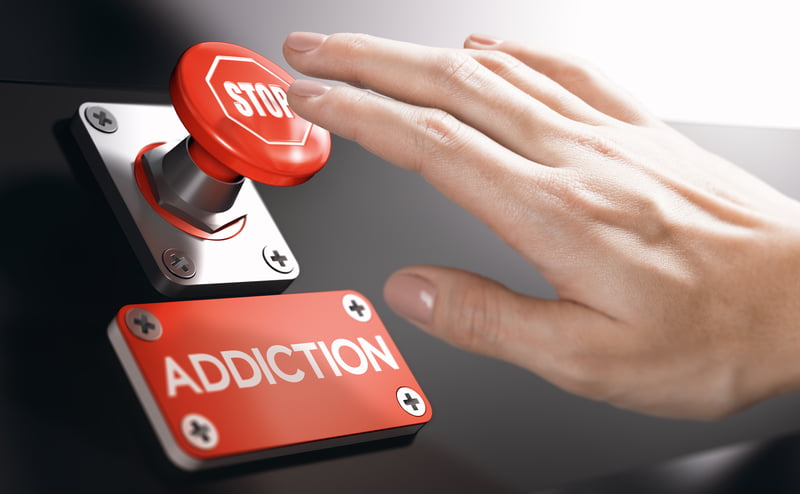Addition can be a painful ordeal, but around 60% of addicts are able to successfully overcome it. Unfortunately, it isn’t always easy to get over an addiction.
After completing their time at a rehabilitation center, recovering addicts face an uphill battle when they try to remain sober. Such facilities will put them through a tailored recovery program that will help them fight withdrawal symptoms as their brains learn to cope without their substance of dependence.
However, most rehab programs will run for a maximum of one month. After this, the drug overuse disorder patient will need to return to the real world. They will need to reintegrate into their family and society and be able to fulfill their obligations. They also have to train their brains to not be dependent on substances. But there is always the possibility of relapsing into drug overuse.
How can a newly rehabilitated drug overuse disorder patient be able to fight cravings for the substance and remain a productive member of society? Here are some measures you can take:
1. Replace Old Habits
There are many different types of addiction treatment programs, but they all focus on teaching you to change your habits. The most effective way of dealing with habits that led you down the slippery slope to drug overuse is to replace them with new, constructive ones. If you don’t, you will be left with idle moments when the cravings may arise and overpower you.
You can schedule your heaviest workouts for the Friday evenings when you would ordinarily get together with your drinking buddies. Exhausted from the physical exertion, you will be more likely to crave a solid post-workout meal and your bed than a long night of boozing.
2. Change Your Social Circle
If you ask any addict how they first encountered their drug of dependence, they will likely tell you they were introduced to it by a friend. So the people you keep around will be crucial to the success of your quest to remain sober. Conversely, keeping in touch with the people you used to consume the drug with will increase the risk of being tempted to indulge.
Even if you don’t intend to party with them, it is wise to distance yourself from former fellow drug users. Instead, replace them with people who will support you in your mission to stay clean. This is why as uncomfortable as it may be, it’s important to tell supportive members of your inner circle that you’re going through detox.
They will encourage you to stay on track and distract you from the desire to indulge. In addition, creating a visiting schedule will ensure you don’t have idle periods where temptation may arise.
3. Make Your Follow-Up Appointment
Follow-up appointments are an integral part of your journey to sobriety. It gives your clinician a chance to monitor your progress and determine if modifications in the course of your treatment are necessary.
The temptation to skip out on your appointment can arise due to two scenarios. First, you could be nursing feelings of guilt and disappointment after a recent relapse and not want to face your specialist. Or you could have been clean for a long period and hence not feel the need to check in with the center.
Instead of relying on your own judgment, you should let a medical professional conduct a thorough examination to get the true picture of your health status. Rehab centers in Massachuetts offer follow-up sessions geared at preventing relapse as part of their recovery programs.
4. Get Busy with New Tasks
Keeping yourself mentally and physically engaged will help take your mind off the waves of cravings that will inevitably come. The beauty is that there are many options when it comes to activities. But, of course, the best kind of activities are those that complement your personal interests.
If you love music, you can take up an instrument or go for vocal lessons. If you love nature, you can join hiking or camping expeditions. Also, bonding with nature is therapeutic for anxiety, depression, and other symptoms associated with drug overuse withdrawal.
Busying yourself with rewarding tasks that you enjoy will give you a natural way to stimulate dopamine production in your brain. As a result, you will feel less need for chemical stimulation from the substance.
5. Change Your Environment
There are places you know will trigger the desire to indulge in your substance of dependence. Places you used to hang out on weekends or weekday evenings after work where you will find people who will invite you to partake. They can also be environments that trigger the stress or emotional trauma that drove you into drug or alcohol abuse.
Changing your environment might mean breaking ties with some friends or ending a cherished but unhealthy relationship. It could mean quitting a job. The price may seem high to pay at present, but after a few years of sobriety, you will find it was a sacrifice worth making.
Staying the Course
Remaining sober after a rehab period is an uphill struggle for any recovering addict. To be able to stay the course, you first need to make up your mind to remain clean. You then need to create a plan that will help you steer clear of the environments and people that can derail you. This plan should include concrete alternatives that will keep you healthy and active.








